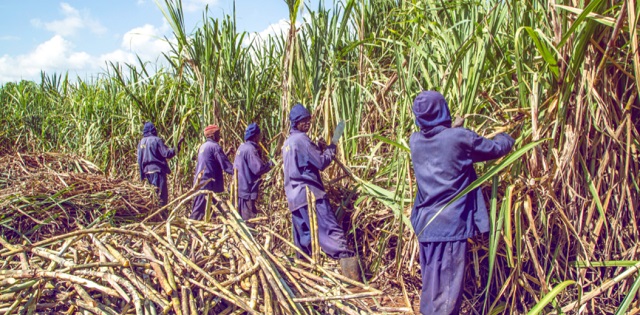
Why the new proposal is bad for the country’s sugar industry
Kampala, Uganda | ISAAC KHISA | Ugandan sugar millers, cane farmers and the government have for sometime been at loggerheads over a proposal to introduce zoning in the sugar cane growing areas.
The proposed Sugar Bill, 2016, seeks to limit establishment of new sugar processing firms in the already existing ones within a radius of 25 kilometres.
It also seeks to force sugar cane farmers or out growers to supply their cane to the sugar processing firm within their zone.
This move is in response to complaints from large sugar producers – Kakira, Sugar Corporation of Uganda Limited (SCOUL) and Kinyara – companies which claim that small sugar producers are involved in buying cane from farmers that they have financed and developed.
The situation has become so tense that on April.30, the ruling National Resistance Movement Caucus chaired by President Yoweri Museveni decided to shelve the controversial Bill as negotiations continue.
Parliament had in November, last year, passed the proposed law but President Museveni refused to assent to it. He, instead, returned it to Parliament arguing that certain clauses, specifically on sugarcane zoning had been omitted in the proposed law.
“The way you (Parliamentarians) are behaving, you are antagonizing our old sugar people and I don’t know the relationship you have with small sugar people. Some of you have got a suspicious relationship with the small sugar people and now you are sabotaging my plan,” President Museveni is quoted as saying during the National Resistance Movement retreat at the National Leadership Institute in Kyankwanzi in March this year.
Museveni said he had plans to encourage big sugar producers to venture into production of refined sugar to be used in the manufacturing of medicines.
But research by The Independent in sugar producing countries in Africa, Asia and South America shows that sugar cane zoning has either failed, been met with strong resistance from farmers or threatened the existence of the entire sugar industry, in spite of its importance to a number of industries such as medicine, foods and confectioneries, among others.
Faced with such a situation, experts familiar with the industry said the government should not rush to protect the interests of large sugar producers at the expense of sugar cane farmers and the smaller millers.
“To introduce such an arrangement in the sugar industry, all stakeholders have to be involved,” Stephen Biraahwa Mukitale, MP for Buliisa and a former procurement administrator at Kinyara Sugar Works, told The Independent in an interview.
“Farmers need to be allowed to own shares in the mills so that their interests are also catered for. Sugar cane farmers also need to have a sense of ownership of the sugar producers for them to succeed.”
Fred Muhumuza, an economist based at Makerere University said the government should come up with a regulator that will deal with farmers’ contracts they have signed with sugar processing firms instead of coming up with the sugarcane zoning initiative. Muhumuza said this move could end up enslaving and rendering sugar cane farmers poor.
But supporters of the new move led by large sugar processing firms under their umbrella, the Uganda Sugar Manufactures Association (USMA), claim that the regulation and zoning will allow the growth of a fruitful partnership and collaboration between millers and farmers.
Jimmy Kabeho, the chairperson of USMA wrote in the Daily Monitor on May. 16 saying sugar production in Kenya has dropped over the years due to lack of regulation and that a similar situation shouldn’t happen in Uganda.
“Why should we reduce the production of one factory by licensing a new factory in the same area? Since 2015, Uganda sugar production has gone down despite having more factories on board. It is, therefore, not the number of factories, but how these factories operate and are managed,” Kabeho said.
“We have also seen cane yields go down (20 tonnes per hectare) in the fields while sugar recoveries have dropped from 10 per cent to 6 per cent. This is a lot of sugar lost in production and loss in corresponding revenues, including government tax.”
Kabeho said cane prices and sugar prices depend mainly on regional and world sugar markets and that in Uganda prices have been high for consecutive seasons.
Uganda’s sugar industry that started way back in the 1920’s, now boasts of nearly 20 licensed companies majority of which are located in the south-eastern Busoga region.
However, though the annual sugar production had increased from 140,000 in the 1960s to 240,000 tonnes in 2008 and 400.5 tonnes in 2014, it dropped to 365 metric tonnes in 2017, according to data from the Ministry of Trade, Industry and Cooperatives.
The local consumption of raw sugar stands at around 350,000 tonnes per annum, according to USMA, with the rest exported to neighbouring states.
But critics say sugar producers need to invest in early maturing high yielding canes as well as technologies to increase cane and sugar production rather than blame their woes on the absence of sugar zoning for their woes.
 The Independent Uganda: You get the Truth we Pay the Price
The Independent Uganda: You get the Truth we Pay the Price



Ejakait, I second a certain gentleman (who we both know) for a PhD immediately. Have you heard or read the story about Lubowa Specialist Hospital? click this link.
https://observer.ug/news/headlines/60875-lubowa-hospital-funds-reported-missing?fbclid=IwAR384gagVM698F6Wk_WHkEPBpJ3kUQn6NNY1Wgdq9M3AO6VI375k0Wn49l4